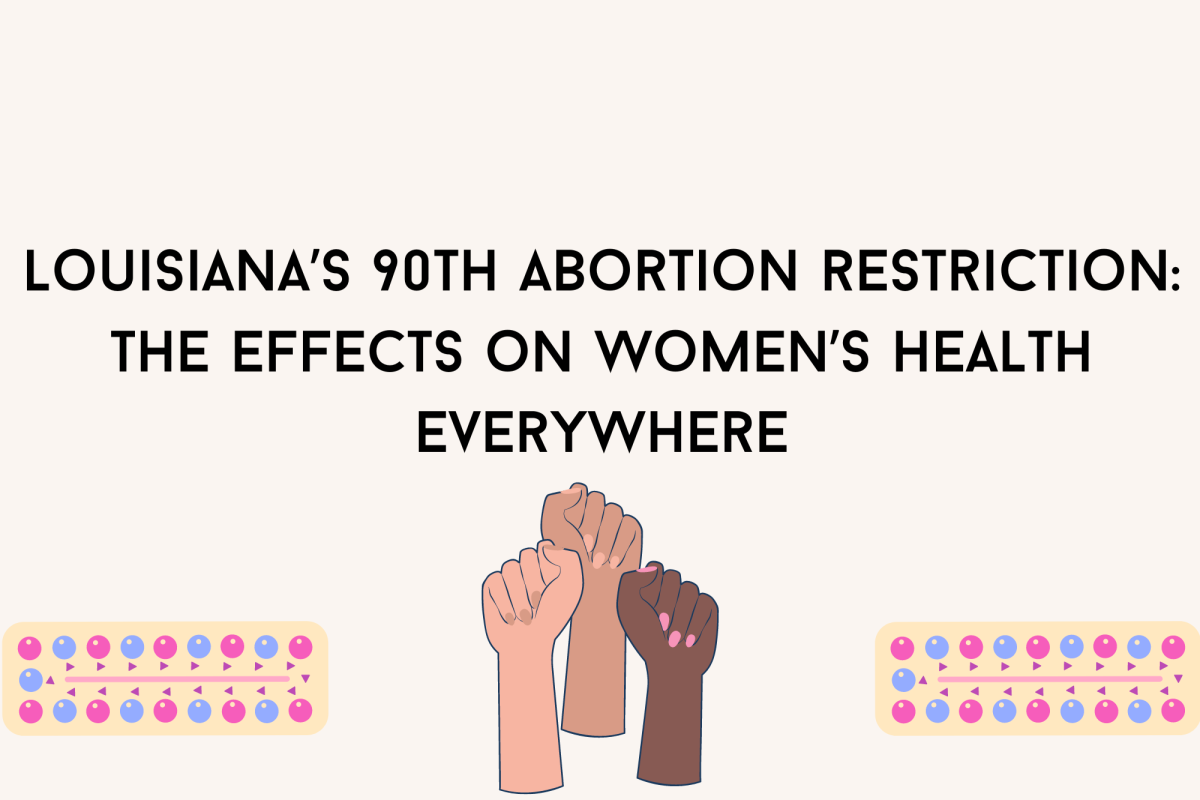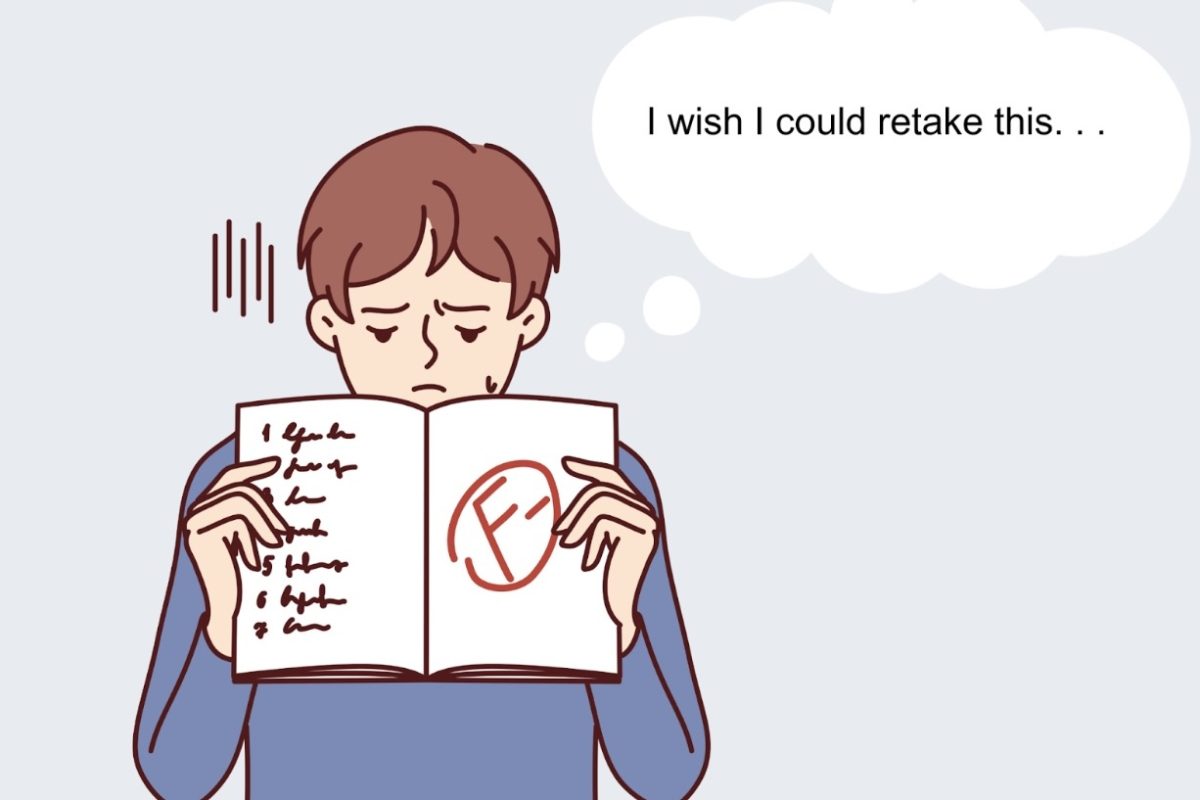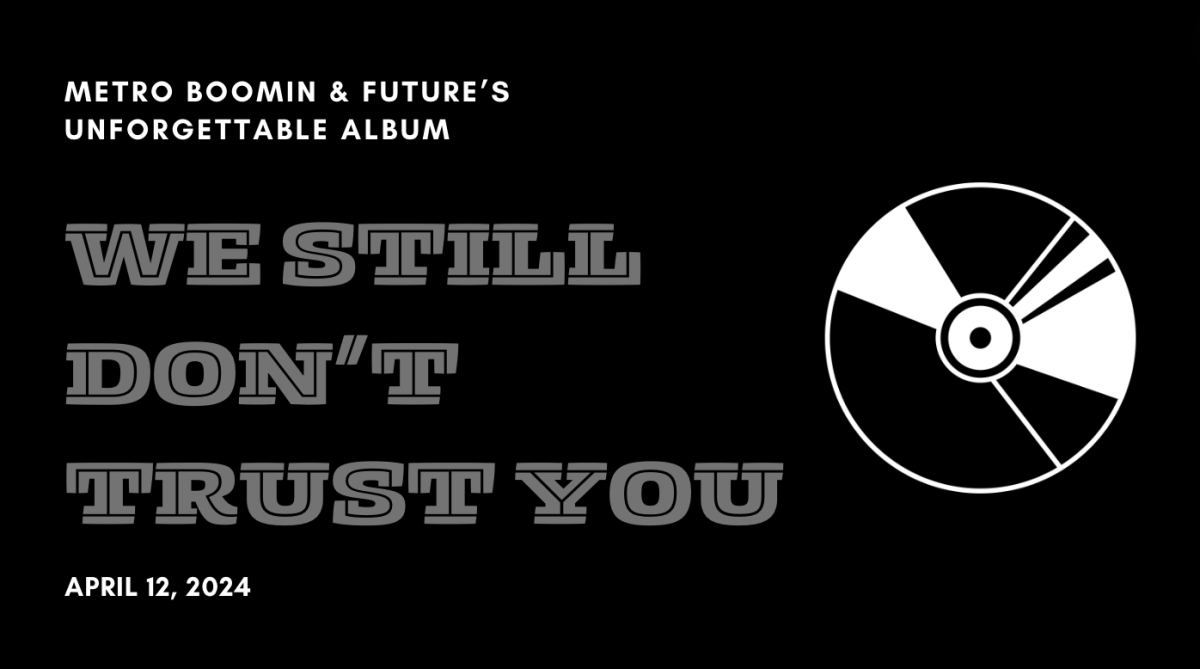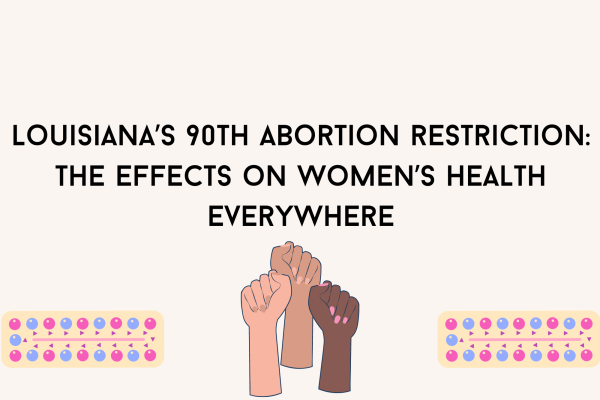Opinion: Texas’s Senate Bill 8 is a work of evil genius
Credit: Courtesy of Flickr user steevithak
WSPN’s Genevieve Morrison discusses the dangers of new law, Senate Bill 8, which severely restricts abortion in Texas.
September 8, 2021
The law, passed in May of this year, went into effect on September 2. It prohibits abortion past the date that a fetal heartbeat is detected, or six weeks from the woman’s last period. No matter which way you slice it, a six-week window to get an abortion is not a long time. If you do the math, the amount of time this allots a woman to make this decision is even shorter than it initially seems. In order to get an abortion, you must first know that you are pregnant. Usually, the chemical that is detected by pregnancy tests, human chorionic gonadotropin, takes about a week post-conception to develop. However, depending on your body, it could be up to five weeks before the hormone builds up to a detectable level. If you’re one of the unlucky ones, you could have less than a week to make the decision, get a doctor’s confirmation and actually have the abortion. This is wildly unrealistic for anyone, but especially vulnerable populations like teens and the poor. Abortions can cost up to $1,500, and many people don’t have that kind of money lying around. Additionally, if you are a minor, you may have to go to court to gain permission for an abortion. But wait, there’s more. That one-week window is just for people with a regular cycle. If you, like many people who menstruate, have a consistently irregular schedule, you may not even notice you’ve missed your period until you’ve crossed the six-week threshold. This unrealistic timeframe effectively eliminates the choice of abortion for many women.
The law, referred to as Senate Bill 8, is riddled with scientific red flags. The authors of the law refer to embryos as “unborn children.” This is typical pro-life manipulative language that misleads the reader. Until the eighth week of pregnancy, scientifically, the “child” is not a baby, or even a fetus, rather it is an embryo. A child is a fully grown human being, an embryo is a collection of cells. This language signifies the disconnect between these legislators and science. It’s not that these legislators don’t know the correct terminology, you don’t get to be a congressperson without taking a ninth grade biology class. They know the term “unborn child” will illicit a more emotional response from anyone reading the document.
These legislators are also purposefully misinterpreting the detectability of a heartbeat this early in a pregnancy. At six weeks, an ultrasound can detect what is widely referred to as a “flutter.” This phenomenon is not exactly a heartbeat. Rather, it is the sound of cells that will eventually become the heart firing electric signals. At this stage in pregnancy, the heart is far from developed, and this flutter does not indicate the viability of the embryo or the pregnancy.
The real brilliance, however, lies in the legal aspect of SB8. It enables citizens to sue anyone suspected of performing or even “aiding and abetting” an abortion, with a penalty of no less than $10,000 per abortion that the person performed or participated in. This could be anyone from the doctor who performed the abortion to an Uber driver who gave the woman a ride to the clinic. Anyone who even intends to “aid or abet” an abortion is liable for a lawsuit. While it is illegal to sue the person who actually got the abortion, almost anyone else is fair game. Besides the fact that this will undoubtedly create a dystopian hellscape of privacy invasions, it also will create a nightmare for the courts. In today’s bureaucratic processes, it’s hard enough to get a trial for anything. What’s going to happen when the courts are flooded with petty abortion suits? Abortion clinics will be sued out of business, and countless people will have to sit in these pointless trials while their bank accounts drain from legal fees. At first glance, this seems counterintuitive on the government’s part. Why would you rely on private citizens to enforce a law when you have an entire police force at your disposal for that reason exactly?
Here’s why. On September 1, the Supreme Court ruled to uphold SB8. A five-person majority stated their reasoning in one paragraph. Essentially, the justices claimed that they had serious doubts about the constitutionality of the law, but that there was nothing they could do to stop it, considering that it’s still unclear whether it will actually be enforced in an unconstitutional way. This response is exactly what was intended by the authors of this bill. Since the law specifically states that it is not enforced by law enforcement, but rather lawsuits from private citizens, there is no way to question its constitutionality. This law purposely shirks our government’s processes for unjust laws, which led many legal scholars to believe that the Supreme Court would block it. Obviously, they were wrong. Already, politicians in other states are seeking to adopt copycat legislation that will attempt to take advantage of this loophole. Florida Senate President Wilton Simpson and Governor Ron DeSantis have already openly supported a new abortion bill specifically designed to mimic the Texas law. The fact that SB8 was essentially okayed by the Supreme Court set a precedent for the future, handed the entire nation a legal can of worms and let Republican legislators know that there are no repercussions to playing dirty.
I’m done handing Republican lawmakers the excuse of stupidity. They might be ignorant, but they aren’t dumb. They know the consequences of making abortion restrictions with no exceptions for rape or incest, how many mothers will die from botched at-home abortions, how many unwanted children will end up in foster care and how many women will unwillingly suffer through the often-traumatic pain of pregnancy and childbirth. Restricting abortion to just six weeks makes life wildly more dangerous for all women, exactly what Texas Republicans want.


![On Monday, June 10, the annual Underclassmen Awards ceremony took place inside of WHSs auditorium.
I think that these awards bring motivation to [WHS] students to preform well academically, Sophomore Rufat Hasanov said.](https://waylandstudentpress.com/wp-content/uploads/2024/06/IMG_0474-1200x800.jpg)












![The Wayland residents who volunteer to coach baseball try to make the environment fun and uplifting for players. “[I try] to build the kids up,” Co-Commissioner and coach for a Minors team Alex Ahmed said. “If someone strikes out, you encourage them, [and] say that [they] get another chance, [or they] could try again next time.”](https://waylandstudentpress.com/wp-content/uploads/2024/06/unnamed-1200x801.png)
















































































Scott • Oct 2, 2021 at 8:11 AM
Jeremy, Get a clue! Woke is when people think they know what’s right, but really they are against MAKING AMERICA (and TEXAS) GREAT. Women need to stop being woke and educated. This just leads to problems. It’s not their place to choose if they want to have a baby. This is what happens when you let women do anything without their father or husband’s permission. God intended for men to be in charge. Just read the Bible. People talk bad about the Taliban, but they follow God’s laws (even though they will burn in hell because they don’t accept Jesus Christ). They are smart enough to not let women get woke or out of line. We could really learn something by that example. I’m thankful we have a glorious leader like Mr. Abbot and the other strong men leading our great state of Texas. The new voting laws will help keep things moving in the RIGHT direction. God Bless Texas!
no • Jan 6, 2022 at 11:32 AM
this has to be a joke
Jeremy • Oct 2, 2021 at 7:51 AM
What’s “Wokeness’?
Ayo? • Sep 14, 2021 at 3:28 PM
^^^Say sike rn
Adrienne Marden • Sep 13, 2021 at 6:33 PM
Excellent article. My favorite sentence is “Besides the fact that this will undoubtedly create a dystopian hellscape of privacy invasions, it also will create a nightmare for the courts.” Keep your opinions coming, that is the only way we can make progress!
Super Happy Fun Wayland :) • Sep 13, 2021 at 4:12 PM
WSPN=Woke
AM • Sep 13, 2021 at 1:58 PM
Wow…nailed it. Great piece.
Wayland Non • Sep 11, 2021 at 3:53 PM
Lol
ANON • Sep 8, 2021 at 6:13 PM
Genevieve Morrison is the definition of Wokeness, Pray for the unborn. Don’t exterminate diversity by having an abortion.